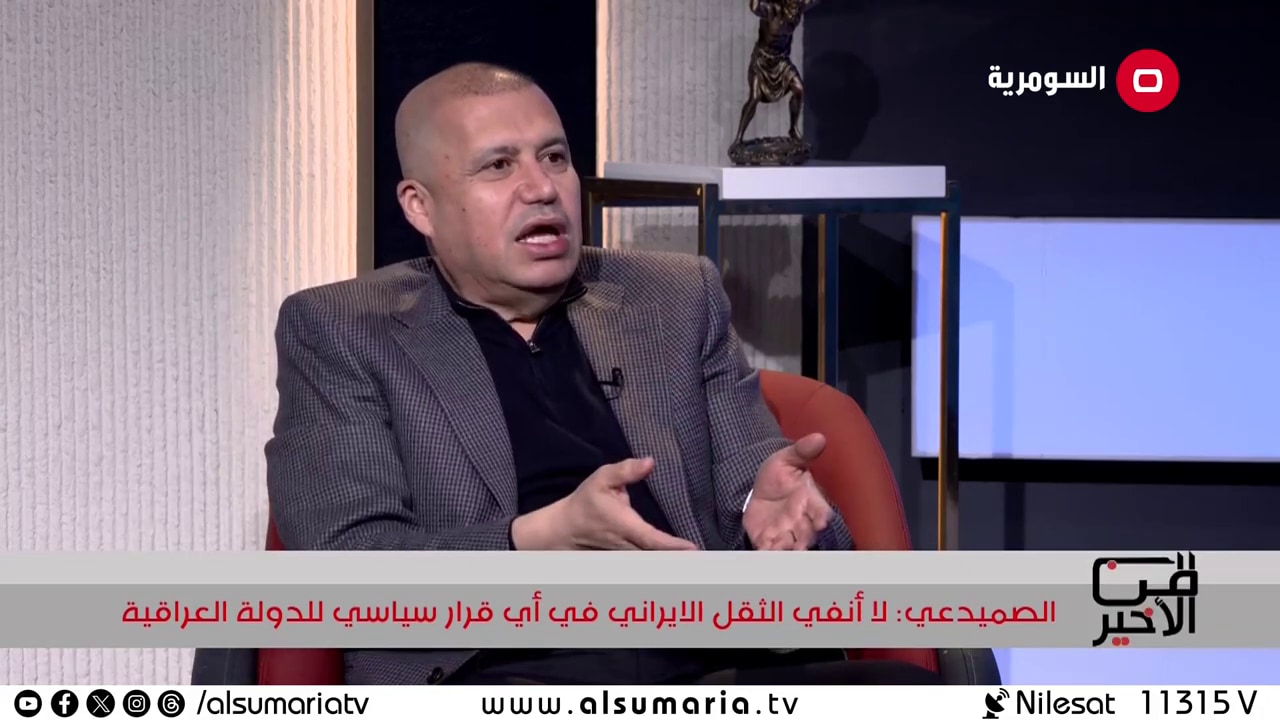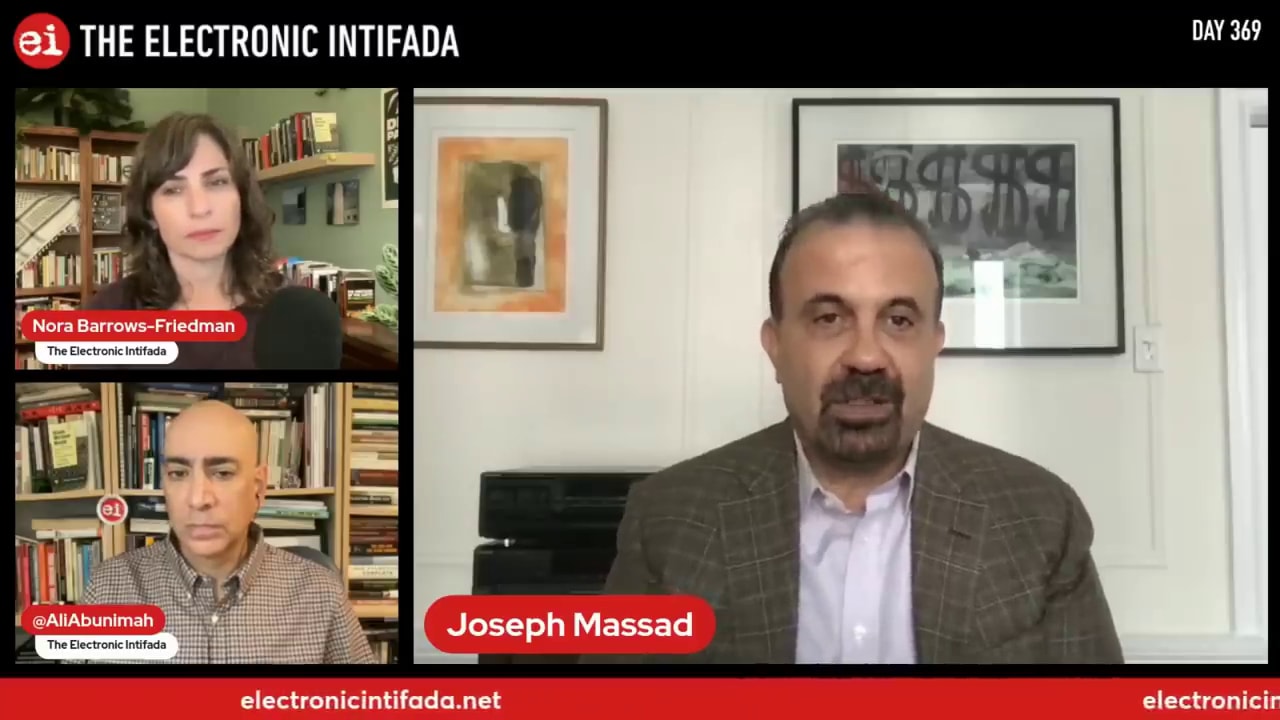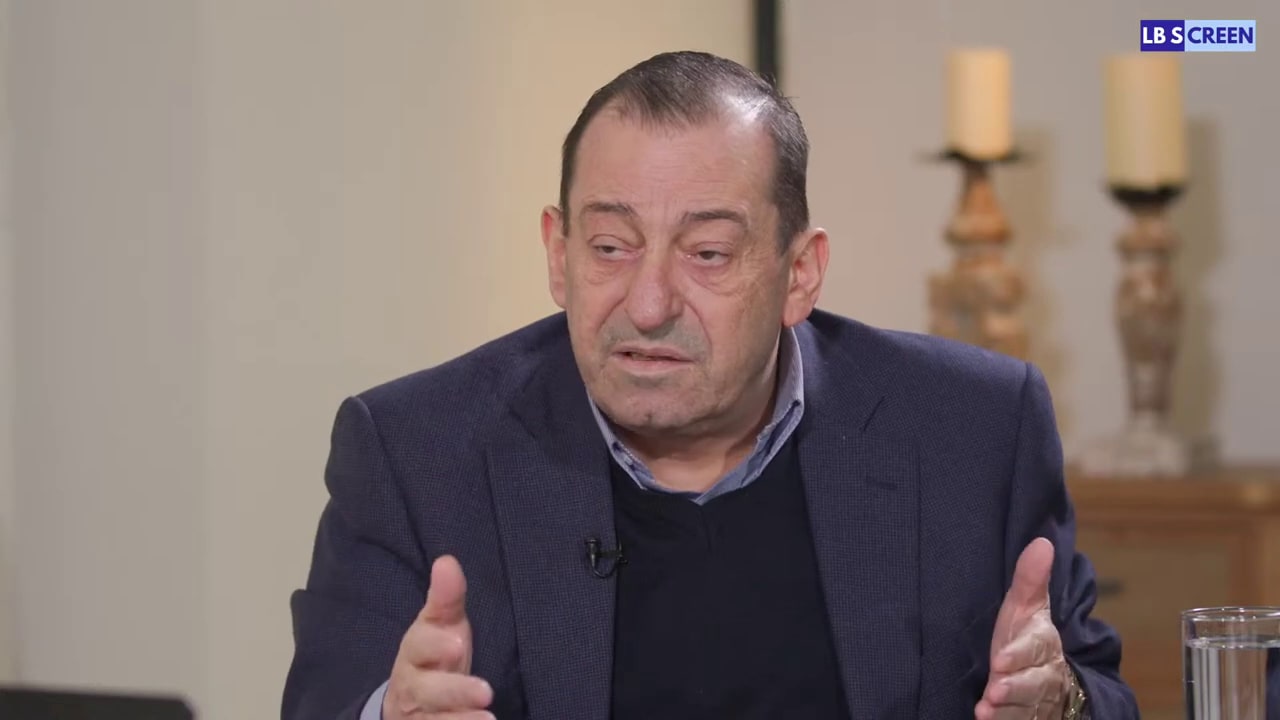
Saudi researcher Abdelhameed Hakeem, General Manager of the Jeddah-based Middle East Center for Strategic and Legal Studies, said that the Arabs must acknowledge that Jerusalem is "as holy to the Jews as Mecca and Medina are to the Muslims." Speaking on Al-Hurra TV, Hakeem said that Israel is "the product of the Jews' historic right in the region." With regard to U.S. President Trump's recent Jerusalem declaration, Hakeem said that it may conceal an opportunity for peace, if Israel has Jerusalem as a capital and the Palestinians receive the management of the Islamic holy places. He suggested that Saudi Arabia could help the Palestinians in this task, and called upon the Arabs not to miss this opportunity like they had done repeatedly in the past. Hakeem also called upon the Arabs to change the culture of hatred towards the Jews that dominates their curricula and Islamic pulpits. The interview aired on December 15.
Abdelhameed Hakeem: "We need to realize and acknowledge that Jerusalem constitutes a religious symbol for the Jews, and that it is as holy to them as Mecca and Medina are to the Muslims. Hence, Arab mentality must be liberated from the Nasserist heritage, and from the heritage of political Islam – both Sunni and Shiite – which, for purely political reasons, have sown the seed of the culture of hatred towards the Jews, and of denial of their historic rights in the region.
[...]
"The Jews are an integral part of the history of this region, and Israel is the product of the Jews' historic right in the region. If we meet with the Israeli negotiators, believing them to be partners to the history of this region – whether the leaders, the peoples, or the intellectual elites – this will facilitate matters and provide flexibility in the peace process. As for Jerusalem, I think that we should be realistic, and adjust to the new political reality in the region. If the Palestinian negotiators, supported by the Arabs, manage to get part of East Jerusalem, and if the holy places are placed under Palestinian management – I think that this will be the greatest political gain that the Israeli [sic] negotiators can achieve now. We should learn from our history in order to be able to make the right decision. In the course of the Arab-Israeli conflict, the Arabs have missed many opportunities.
[...]
"The Arabs have missed opportunities – since 1956, when the late President Gamal Abdel Nasser took charge... They lost opportunities to have a Palestinian state in the West Bank and Jerusalem. When Habib Bourguiba presented his peace initiative, under the slogan 'Take [what you can] and Demand [the rest later],' he was labeled a traitor, and his initiative was rejected. When President Sadat initiated the peace process, he too was labeled a traitor. Sadly, the Arabs have planted mines in the path of anyone trying to open a door for peace. Gamal Abdel Nasser used the Arab-Israeli conflict as a means to legitimize his dictatorship in Egypt, and as a sword with which to fight his rivals in the region. Most Arab regimes have followed in his footsteps, and for the same reasons. Political Islam, despite being totally at odds with the Nasserist regimes, agreed on one thing: turning peace into a crime.
[...]
"When Saudi Arabia launched the Arab peace initiative, the initiative was, unfortunately, scorned. I believe that Trump's decision conceals an opportunity for peace, but the Palestinians must unite their ranks, and make the decisions within the Palestinian framework.
[...]
"When I visited Ramallah, I talked to people at a Palestinian research center. I said to them: You are bad at addressing the Israeli citizens. Your rhetoric does not convince the Israeli citizens that peace will provide them with legitimacy and security in the region. The Israelis sense the culture of hatred among their neighbors. It began with Gamal Abdel Nasser, who said that we would throw the Jews into the sea, and it continues to this day – in the curricula, from the religious pulpits, and in cultural symposiums. The culture of hatred towards the Jews is deeply rooted in our Arab world.
[...]
"If we, the Arabs, really want there to be a settlement, we need to reexamine ourselves and conduct an ideological revolution in the way we treat the Jews. We should believe that the Jews are an integral part of the region, and that peace is the best way to liberate the region from decades of conflicts, which have exhausted the region and depleted its resources.
[...]
"My proposal is that Saudi Arabia, as a country with substantial economic resources, and as a country with a historical and leading experience in managing holy places, can help manage the holy places [in Jerusalem], if we succeed in having the Islamic holy places under Palestinian management, while Jerusalem will be the capital of Israel. If we manage to reach that point, I believe that this will constitute a political gain for the Palestinian struggle, and in return, there will be a Palestinian state, there will be an end to the suffering of the Palestinians in Gaza, in Ramallah, and in the refugee camps abroad. My view is that human lives are dearer in the eyes of Allah than stretches of land."














